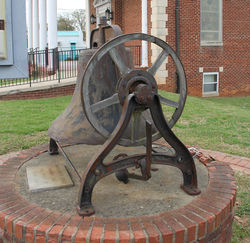top of page
NEXT EVENTS
Sunday
Sunday School Groups
9 a.m. - 9:45 a.m.
Worship Service
10:00 a.m. - 11:00 a.m.
Wednesday
The Gathering Place
Community Meal
5:30 p.m. - 6:30 p.m.
Bible Study
6:30 p.m. - 7:30 p.m.

.png)
New date! You can still sign up!

Get Yours Today!
Youth Raffle Tickets are available from a Youth member or leader, or by calling the church office @ (704) 485-4313.
Proceeds from this fundraiser are to help with camp expenses and other projects. Tickets are $20 each.
bottom of page









